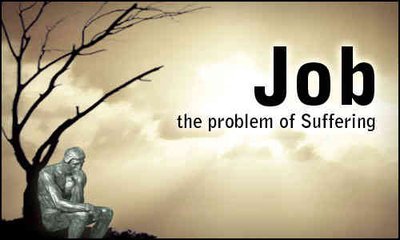Thoughts for the Day
Wednesday, 2nd October 2024: Job: 3
Job: 9 Prayer Conscience Wisdom Suffering Justice God
Reading : Verses from Job, Chapter 9

Then Job answered Bildad,
‘Indeed I know that this is so;
but how can a mortal be just before God?
If one wished to contend with him,
one could not answer him once in a thousand.
He is wise in heart, and mighty in strength
—who has resisted him, and succeeded?—
he who removes mountains, and they do not know it,
when he overturns them in his anger;
who shakes the earth out of its place,
and its pillars tremble;
who commands the sun, and it does not rise;
who seals up the stars;
who alone stretched out the heavens
and trampled the waves of the Sea;
who made the Bear and Orion,
the Pleiades and the chambers of the south;
who does great things beyond understanding,
and marvellous things without number.
Look, he passes by me, and I do not see him;
he moves on, but I do not perceive him.
He snatches away; who can stop him?
Who will say to him, “What are you doing?”....
How then can I answer him,
choosing my words with him?
Though I am innocent, I cannot answer him;
I must appeal for mercy to my accuser.
(Lectionary, New Revised Standard Version)
Thoughts
In the intervening chapters Job's friends have been talking to him. First is Eliphaz who is sympathetic, though he seems to indicate that Job is not behaving in the way he has previously preached to others. The friends have begun to wonder if Job has somehow sinned for God to treat him in this way. After Eliphaz comes Bildad. He begins by accusing Job of being a wind-bag (his words are: "be a great wind") and he asks him "Does God pervert justice?" He then reminds him that if he is so pure and upright, he should appeal to God since "God will not reject a blameless person". For Bildad there are only two kinds of people, the blameless and the wicked. But Job is way ahead of his friends and does not believe in his black and white definition. He knows that all men and women are not perfect.
In today's reading we have to imagine a court of law, with a judge, a defendant, and an accuser. Job understands what his friends are saying, but he has problems. If he takes his dispute to God, then his accuser is also his judge. So in this case, who will defend him if he contends with God? In other words how can someone win a legal dispute with God? Job sees God as great (with a capital G!) and he lists examples of His amazing power, His wisdom, and His justice, but ultimately his problem is two-fold, how can he get justice if his accuser is also his judge, and how can he deal with one he cannot see in order to get an answer as to why his children and his possessions have been taken from him?
Job's faith in God is much more imaginative than his friends, and he will continue to explore his way to God who has been his confidant and his friend throughout his life. Note that while his friends talk about God. Job will continue to contend with God to the end. "Let the Almighty answer me!" he will shout (Job 31.35), before God finally responds to him.
Prayer
Almighty God,
we, too, often want to know "Why?"
Why has an innocent baby died,
why are families being killed by rockets,
why are those deemed 'saints' taken from us,
why do some live in perpetual pain,
why do many elderly not have enough money
to heat their house,
and why do the wicked seem to grow richer?
Help us to make our own confessions,
and to live a life that helps others who suffer.
Amen.
Job has examined his conscience and believes he is blameless. You might like to look at this article on the conscience, from a Christian and a Hebrew perspective: